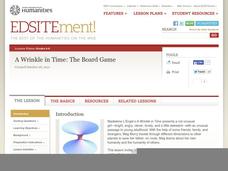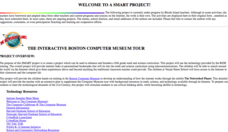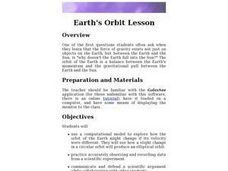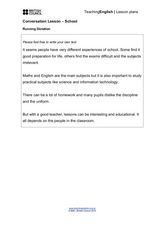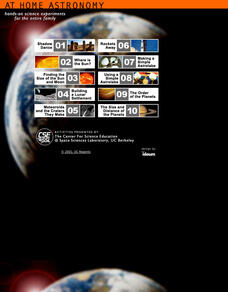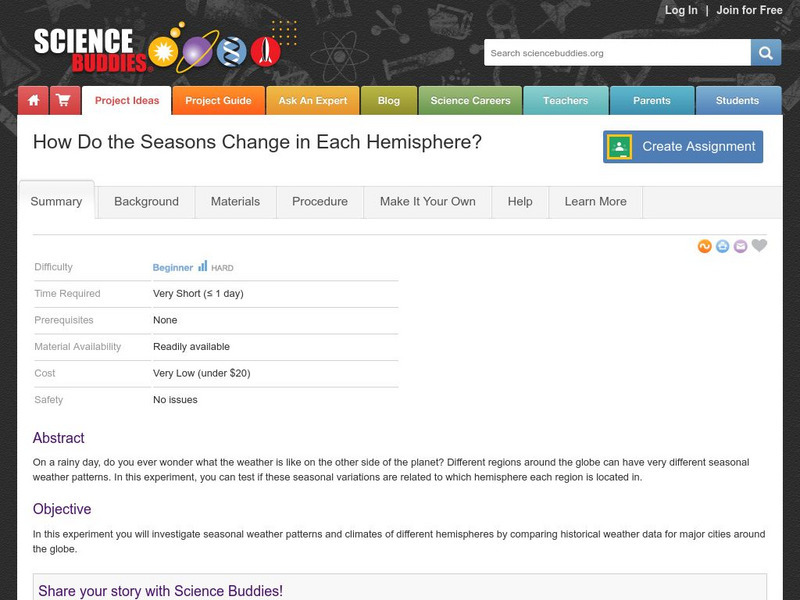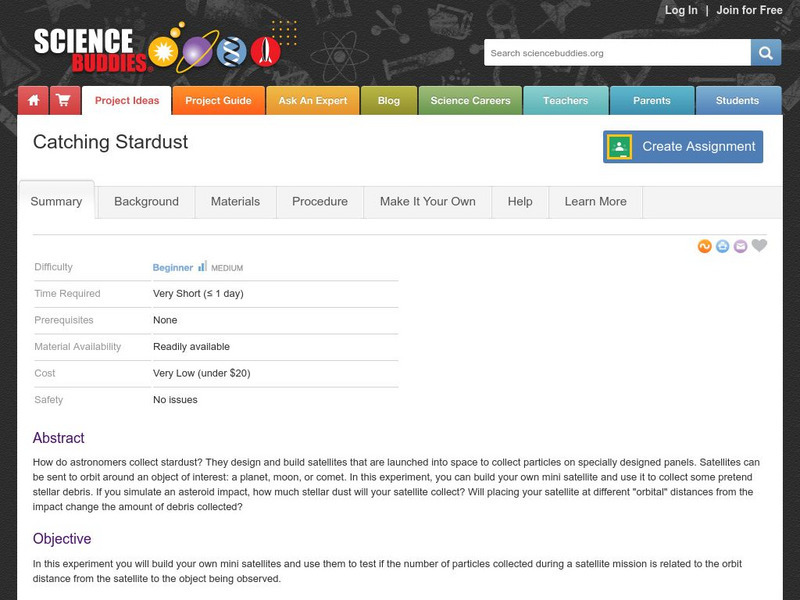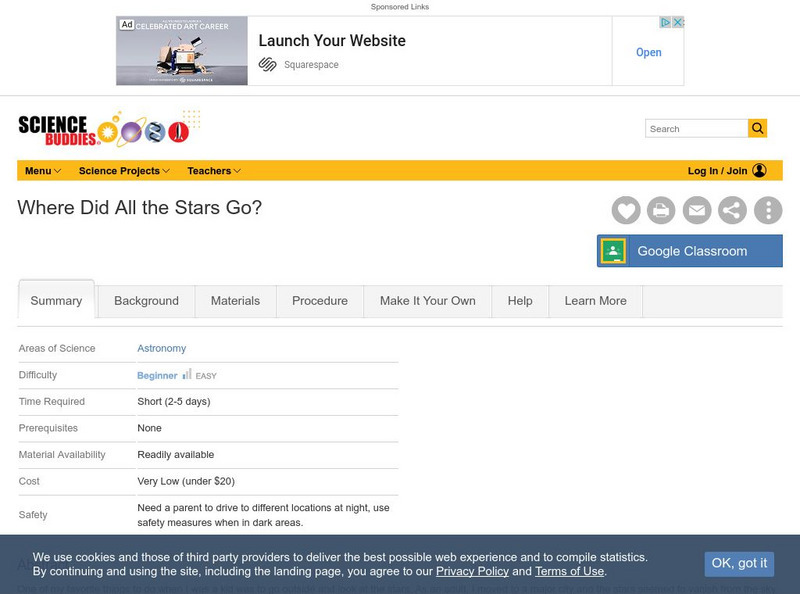Curated OER
Law of Superposition
Students identify the law of superposition and it states that beds of rock in a series are laid down with the oldest at the bottom and younger layers on the top. They construct a legen for a block diagram and construct a block diagram...
Curated OER
Gardening with Your Students
By growing a class or school garden you can teach students about the environment, the life cycle of a plant, and healthy eating.
Teach Engineering
An Inflated Impression of Mars
Help your class understand the magnitude of the distance between Earth and Mars with an activity that asks small groups to use balloons to create scale models of the Earth, Moon, and Mars. Class members figure out the distances...
National Endowment for the Humanities
A Wrinkle in Time: The Board Game
Tackle some big questions about A Wrinkle in Time by Madeleine L'Engle with a board game project. As learners brainstorm for and complete their board games, they consider what helps and hinders Meg on her journey and why she succeeds in...
Curated OER
Sandscapes to Landscapes
Students explore landscapes and create their own in a creative project.
Curated OER
Earth's Age: The Dating Game
Students conduct a simulation to determine radioactive decay and half-life. Using pennies, dice or sugar cubes as isotopes placed in shoe boxes simulating rocks, they hold five trials representing 1000 years each to find the theoretical...
Curated OER
The Mathematical Fingerprint of Our Solar System
Pupils study the beautiful mathematical model unique to our solar system.
Curated OER
Plotting Data on a Graph
Students investigate graphing. In this graphing lesson, students survey the class and create graphs to reflect the data collected.
University of Rhode Island
The Interactive Boston Computer Museum Tour
Fifth graders use the Internet to use an interactive program which helps them explain the Internet better. They take a tour of a computer museum and focus on how the Internet works through an exhibit.
Curated OER
The Water Cycle: A Repeating Pattern in Nature
Students are introduced to the terms related to the water cycle in their native language. In groups, they describe the steps of the cycle using different materials found in their art classroom. They describe how energy helps water...
Curated OER
Making Good Decisions
Learners discuss consequences and trade-offs to different scenarios. In this investigative lesson plan students learn about compromise and discuss possible options and consequences to certain situations.
Curated OER
The Amazing and Beautiful Aurora
Young scholars create an oil pastel painting. In this pastel painting lesson, students examine images of the aurora borealis. Young scholars produce an original pastel painting of the aurora.
Curated OER
Mars 500: Would You Go?
In this Mars worksheet, students read a 7-paragraph article and respond to 8 graphic organizer, matching, and short answer questions. Vocabulary words and definitions are included.
Curated OER
Using Infinitives In Context
In this using infinitives in context worksheet, learners read an article containing infinitives, then interactively complete 8 sentences with immediate online feedback.
Curated OER
Taking Risks: Drug and Alcohol Abuse
Students discuss a video about drug and alcohol abuse and their connection to risk-taking. They answer questions on a risk factor sheet about the use of tobacco, drugs, and alcohol. They discuss long and short term goals and how not...
Curated OER
Earth's Orbit Lesson
Tenth graders devise a computational model to explore how the orbit of the Earth might change if its velocity were different. Using accurately recorded data, 10th graders defend a scientific argument.
Curated OER
Mississippi Gulf Coast Islands
Fourth graders complete a variety of exercises as they study the creation, history, and geography of the Mississippi coastal islands. They discover the natuaral forces that act on the islands and how these forces affect the habitats and...
Curated OER
ESL Conversation-School
In this ESL conversation about school worksheet, students complete a dictation activity and read and discuss several articles about various aspects of school. A reference web site is included.
University of California
At Home Astronomy: Hands on Science Experiments for the Entire Family
A collection of ten hands-on science experiments for the entire family that will help you understand concepts in astronomy. Make an astrolabe, find the size of the sun and moon, build a lunar settlement, find out about meteoroids, shadow...
Science Buddies
Science Buddies: The Moon and the Stars
When you are in the city, only a few of the brightest stars are visible. But when you are in the country, you can see many more stars than you can count. Sometimes you can even see the bright belt of our galaxy, the Milky Way. In this...
Science Buddies
Science Buddies: How Do the Seasons Change in Each Hemisphere?
On a rainy day, do you ever wonder what the weather is like on the other side of the planet? Different regions around the globe can have very different seasonal weather patterns. In this experiment, you can test if these seasonal...
Science Buddies
Science Buddies: Catching Stardust
How do astronomers collect stardust? They design and build satellites that are launched into space to collect particles on specially designed panels. Satellites can be sent to orbit around an object of interest: a planet, moon, or comet....
Science Buddies
Science Buddies: Where Did All the Stars Go?
If you live in a big city or urban area it is hard to see many stars at night. In most urban areas only the most brilliant stars, planets and the moon can be seen. This is because of something called light pollution which is the...
ClassFlow
Class Flow: Science Investigation Sheet
[Free Registration/Login Required] This flipchart gives a guideline for planning and conducting science experiments. It gives an organized approach to planning, obtaining evidence, presenting and evaluating the results.



